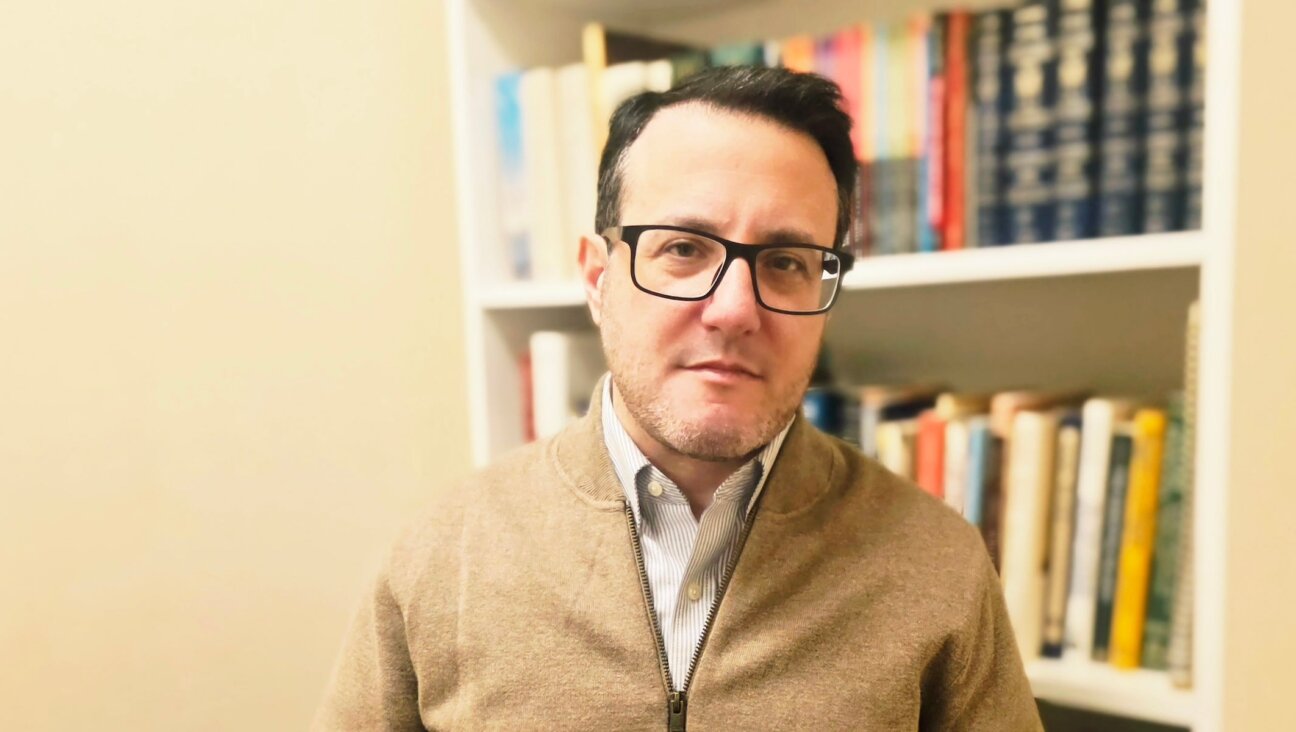IN OTHER WORDS…
Conspiracy Theories: It is, it seems, an age-old tradition: The more antisemitic the world gets, the more Jews try to figure out why.
Recent headlines have made for many a wrinkled brow: A German parliamentarian calls Jews “a race of perpetrators,” and he’s offered ideological support by a commander of an elite German special-forces army unit. A European Union poll finds that the Continental public believes Israel to be a greater threat to world peace than any other nation. And Russian President Vladimir Putin throws oil mogul Mikhail Khodorkovsky in prison, the latest move in a crackdown on Jewish oligarchs.
And that was just last week.
“Since the fall of the Berlin Wall, the oldest hatred has been making a global comeback,” Mark Strauss declares in the November/December 2003 issue of Foreign Policy magazine. “The time frame for this resurgence of judeophobia corresponds with the intensification of international links that took place in the 1990s.”
The heady decade of globalization succeeded in tearing down numerous cultural and economic borders. When the movement went sour, though, the most durable of hatreds that moved across ideological boundaries. For globalization’s discontents, Jews became a one-size-fits-all culprit.
“The new antisemitism is unique because it seamlessly stitches together the various forms of old antisemitism,” writes Strauss, a senior editor at Foreign Policy: “the far right’s conception of the Jew (a fifth column, loyal only to itself, undermining economic sovereignty and national culture), the far left’s conception of the Jew (capitalists and usurers, controlling the international economic system), and the ‘blood libel’ Jew (murderers and modern-day colonial oppressors).”
The scapegoating of Jews has made for some awfully strange bedfellows. Ultra-nationalists in the West fiercely opposed to immigration from the developing world are linking Web sites with Third World anti-globalization activists — not to mention Islamists around the world. British fascists are including Noam Chomsky on their lists of recommended reading.
Underlying the antisemites’ common cause is a tendency toward conspiracy theories. For ultra-nationalists, international financial institutions such as the International Monetary Fund and World Bank are modern-day incarnations of the Elders of Zion. For anti-globalization activists and Islamists, Israel is the last vestige of colonialism. For both ideologies, Jews are the invisible hand behind the oppressive systems.
“Conspiracy theories must always have a conspirator, and all too often, the conspirators are perceived to be Jews,” Strauss writes. “It takes but a small step to cross the line dividing the two worldviews.”
The image of the all-powerful Jew, of course, runs counter to the widespread Jewish self-perception as the eternal victim. While many throughout history have laid the blame for the world’s woes on Judaism’s collective doorstep, followers of the faith have developed a counter-conspiracy theory, one that presumes persecution regardless of time or place. The irony is not lost on the Foreign Policy senior editor.
“It is paradoxical that Jews should find themselves swept up in the backlash against globalization, since Jews were the first truly globalized people,” he notes. “The survival of Jewish civilization — despite 2,000 years without a state and the scattering of its diaspora to nearly every nation on Earth — undermines the claim that globalization creates a homogenized world that destroys local cultures.”
The answer to global antisemitism, Strauss argues, is more, not less, globalization.
“Jewish voices need to be raised when the shouting of the militants threatens to drown out other issues,” he urges. “Tikkun olam imparts a mandate to counter demagogues in the developing world who scapegoat Jews and Israel as an excuse to perpetuate systems that keep their nations mired in poverty.”















